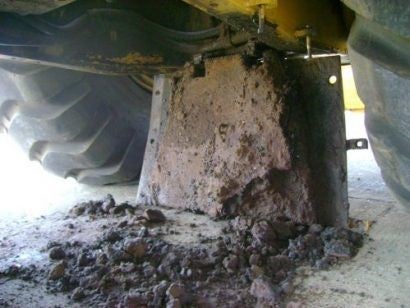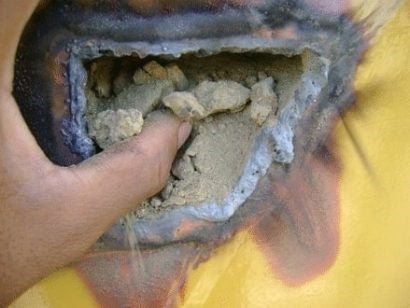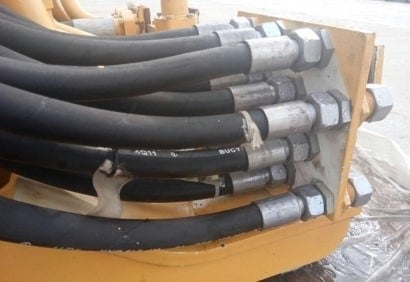What is Biosecurity?
Biosecurity is a set of preventive measures designed to reduce the risk of transmission of infectious diseases in crops and livestock, quarantined pests, invasive alien species, and living modified organisms (Koblentz, 2010). The emerging nature of biosecurity threats means that small scale risks blow up rapidly, thus an effective policy becomes a challenge for there are limitations on time and resources available for analyzing threats and estimating the likelihood of their occurrence.
In terms of biosecurity inspection services offered by Freightplus, these apply most commonly to quarantine regulations for importing used machinery. In particular, there are strict quarantine requirements for importing used machinery into Australia, importing used machinery into New Zealand, importing used machinery into New Caledonia and importing used machinery into the USA.
Biosecurity in Australia – importing used heavy equipment into Australia
The term, “Biosecurity”, as it relates to biosecurity compliance for importing used machinery into Australia, is quite a recent term. The current Australian government agency policing the importation of used machinery into Australia is DAWR – the Department of Agriculture and Water Resources. Under the previous government, the department was DAFF – the Department of Agriculture, Forestry and Fisheries. And, before that, AQIS – the Australian Quarantine and Inspection Service. Most Australian machinery importers, and companies exporting used machinery to Australia, still commonly refer to “AQIS requirements for importing used machinery into Australia” or “AQIS cleaning” in relation to cleaning machinery to Australian standards.
AQIS, DAFF and “Australian Quarantine” requirements for importing machinery into Australia were superseded with the introduction of the Australian Biosecurity Act, 2015.
In simple (much abbreviated) terms, goods are classified as either prohibited imports, non-prohibited imports or conditionally non-prohibited imports. Used machinery falls under the latter classification, which means that they are a prohibited import unless certain conditions are met which allow them to be imported.
Effectively, this means that used machinery is a prohibited import into Australia unless it is as clean as new.

Any used machinery arriving at the Australian entry port that is not compliant with this condition, is therefore deemed to be a prohibited import. All used machinery entering Australia is inspected by a DAWR biosecurity officer at the port of entry.
If a biosecurity officer suspects, on reasonable grounds, that the level of biosecurity risk associated with goods that are subject to biosecurity control is unacceptable, “…a biosecurity officer may take possession of the goods and cause them to be exported from Australian territory, destroyed or otherwise disposed of.”
Many Australian importers of used machinery have had the unfortunate experience of having to pay the costs of shipping their machine back out of the country, arranging offshore machinery cleaning and then re-importing it once the required level of biosecurity cleanliness had been achieved. There have even been cases of the same machine being rejected and re-exported twice.
A person not complying with DAWRs directions to forfeit or re-export the offending used machinery (commonly referred to as a ‘re-export order’) can be liable to civil penalties, including a maximum jail term of up to 5 years.
If you’re selling a 10-year-old garbage compactor or a mining shovel with 5,000 hours on the meter, cleaning your used machinery to ‘as new’ condition might seem a daunting task, however, Australian biosecurity compliance IS achievable. If you are exporting used machinery to Australia, you simply need to ensure that the machinery is as clean as new – INSIDE AND OUT – before you export.

When used machinery arrives in Australia, the primary biosecurity inspection (initial inspection) takes place on the wharf, as cargo is discharged from the ship it arrives on. The inspecting DAWR biosecurity officer will typically spend 30-90 minutes conducting a thorough visual inspection of the machine. The Australian biosecurity officer will look for any visible contamination – all over the machine, under the machine, inside track frames, behind belly plates, in every joint and cavity and crack and crevice, so you’ll need to do a very thorough job cleaning your machine to Australian standards.
If there is no obvious contamination, the machine will pass the initial biosecurity inspection and be permitted to proceed to an “Approved Arrangement” (formerly referred to as a QAP or Quarantine Approved Premises) – defined under the Biosecurity Act 2015 as an arrangement, approved by the Director of Biosecurity, that provides for a biosecurity industry participant to carry out biosecurity activities to manage biosecurity risks associated with specified goods, premises or other things.
Secondary inspection will take place at the Approved Arrangement. This will likely include partial dismantling of the machine to access any areas the biosecurity officer could not inspect intact. This will typically involve the removal of any wiring conduit and will commonly involve taking off components such as the operator’s cab, fuel tank, wheels, etc. If there are any holes, ruptures, splits, cracks or fresh welds, the inspecting DAWR biosecurity officer will direct the importer (or the forwarder/customs broker/Approved Arrangement personnel on behalf of the importer) to cut open those sections for high volume flushing, under DAWR supervision. Radiators, too, will always be flushed as part of this secondary inspection.
As a general rule, if you’re cleaning used machinery for Australia, just remember that anywhere water can reach, biosecurity risk material can reach!

Many Freightplus customers, importing used machinery into Australia, engage Freightplus to take care of their biosecurity concerns and eliminate any of the risks of importing their used machinery into Australia. Freightplus provides relatively low-cost biosecurity services including booking a Freightplus PSI (pre-shipment inspection).
What is a Freightplus biosecurity pre-shipment inspection (PSI)?
In a nutshell, it’s this: Freightplus sends one or more of its biosecurity compliance inspectors to the location at which the used machinery is being cleaned for shipping to Australia. Our inspector/s will carry out exactly the same inspections as the DAWR biosecurity officer will carry out at the Australian entry port. The Freightplus biosecurity compliance inspector will then advise and assist the local cleaners to achieve the necessary level of cleanliness for importing used machinery into Australia. Once the Freightplus biosecurity compliance inspector is satisfied that the machinery is clean enough to ship to Australia, he will issue a Freightplus Certificate of Cleanliness, GUARANTEED AGAINST RE-EXPORT.
Freightplus biosecurity inspection services are available exclusively to Freightplus customers, to complement our international shipping and project-forwarding services.
You will be surprised at just how cost-effective these Freightplus biosecurity pre-shipment inspections are and our GUARANTEE AGAINST RE-EXPORT is a worthwhile investment for any companies importing used machinery into Australia or selling used machinery to Australia.

